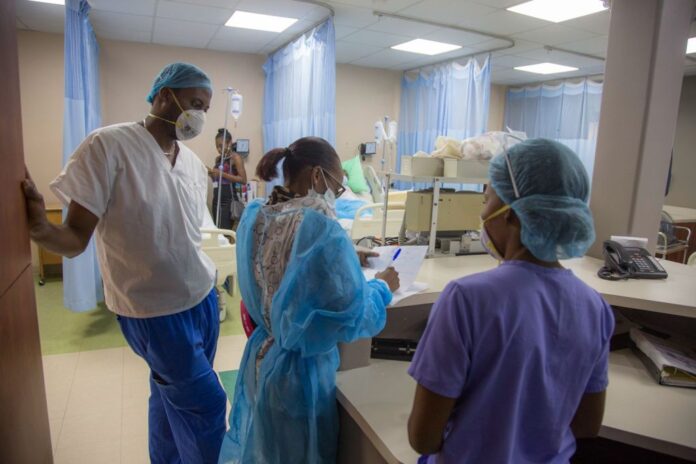
In the United States, new cases of COVID-19 are surging, recording a daily record of more than 187,000 cases and inching closer to 260,000 deaths. That crisis however does not predict a similar surge in Haiti, said Dr. Jean William Pape, director of the GHESKIO network of health clinics in Haiti.
Pape, co-chair of the Multisectoral Commission for the Management of COVID-19, a public-private partnership created by the Haitian government, held a Nov. 24 conference call to share that update.
“I don’t think we will have a second wave,” Pape said. “We have reopened the airports, we have reopened the economy fully, we have reopened schools, and we have not seen an increase in cases.”
The latest Haitian government totals show 9,224 total confirmed cases of coronavirus. Even if Haiti does see a surge this winter, Pape said he feels far more confident in the country’s healthcare capacity, compared to the spring.
At the beginning of the pandemic in Haiti, the country had two laboratories capable of testing for coronavirus and four health care centers with the staff and equipment to treat patients. Now, Haiti has 13 laboratories for testing and 43 health facilities with the requisite personal protective equipment, or PPE. Pape said the multi-sectoral commission has also trained health care workers to staff the facilities.
Haiti recorded its first coronavirus case on March 19. Since then, 232 people have died.
“Over 1,000 people were trained, most of them at GHESKIO,” said Pape. “Altogether, we have set up a beautiful machine, a unique partnership with the Haitian private sector, the Ministry of Health [and] UN agencies.”
Haiti recorded its first coronavirus case on March 19. Since then, 232 people have died from the virus, the government has reported.
Charles Edouard-Denis, a Petionville business owner, said in a phone interview his brother was one of the 232 Haitians who perished from the disease. As a result, Edouard-Denis said he observes social distancing around his parents, whom he has not hugged since his brother passed in June.
Across public spaces, life has returned to pre-pandemic norms.
“Ninety to 95 percent of people do not wear a mask outside or even on public tap-taps,” Edouard-Denis said.
Medical experts have cited Haiti’s young population as one possible reason that the worst-case initial projections about the COVID-19 death toll have not materialized. The median age in Haiti is 23, compared to the global median of 30 years old.
Comparing Haiti to the neighboring Dominican Republic, Pape cited the flourishing tourism industry in the DR as a factor for its higher case count of 139,000 cases and 2,300 deaths.
As the global death toll approaches 1.4 million, three drug companies have announced plans to distribute billions of vaccine doses next year, after receiving widely expected government approval. More than 6 million doses of vaccine could be available in the U.S. by mid-December.
Pape said he anticipates countries adding COVID-19 to their required list of vaccines for incoming travelers. But in Haiti, he is most concerned about health care workers, those with preexisting conditions and people over 65 years old.
“People will need the vaccine to travel,” Pape said. “But [in] Haiti’s population, if enough of them have antibodies to the virus, I think at least we will be spared that second wave, and we will not need the vaccine immediately.”
This article was first published on the Haitian Times website.










